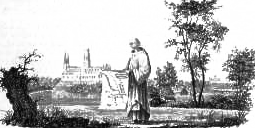Works by St Ambrose
Durham Cathedral Library MS B.II.6
A manuscript from the foundation gift of Bishop William of St Calais to his new priory at Durham, containing a group of works by St Ambrose and two by St Augustine. Like so many of these post-Conquest manuscripts, it seems to have been written in Normandy but also shows signs of additions before the end of the 11th century written by scribes based at Durham Priory.
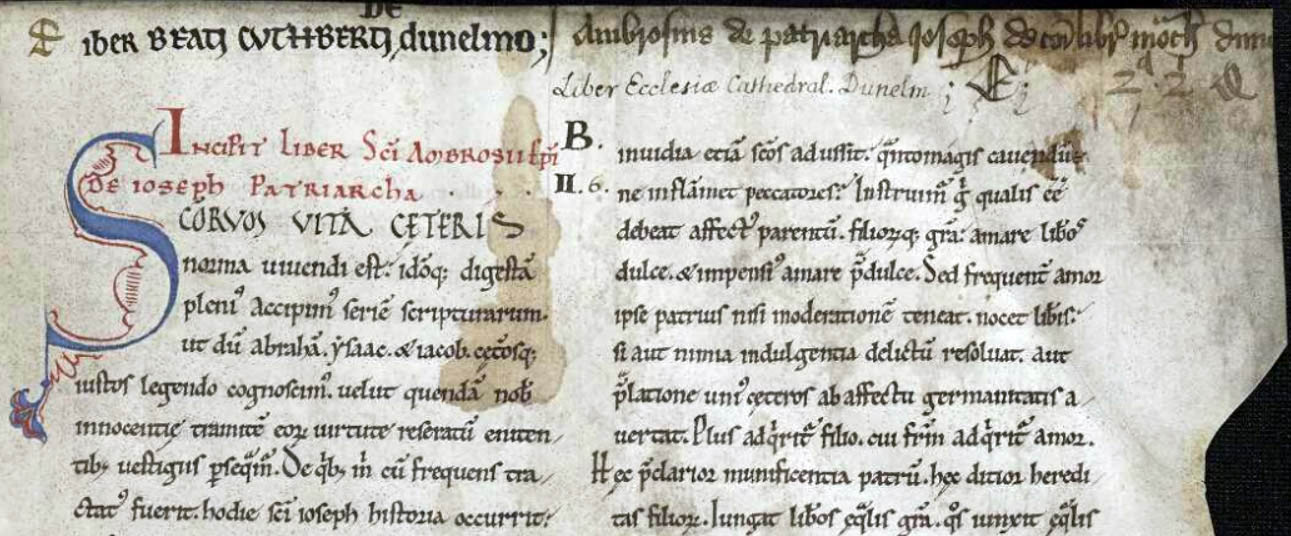
Posted by Richard Higgins on 18th August 2016
Homilies of Paul the Deacon
Durham Cathedral Library MS A.III.29
An English manuscript produced just after the Norman Conquest (probably at Winchester), containing part of an annual cycle of sermons to be preached on the feast days of the church. The first homily would have marked the feast of St Praxedis (21 July), although here it is no more than a note referring you to the entry for St Potentianae before the text moves on to St James the Greater, whose feast was celebrated on 26 July.
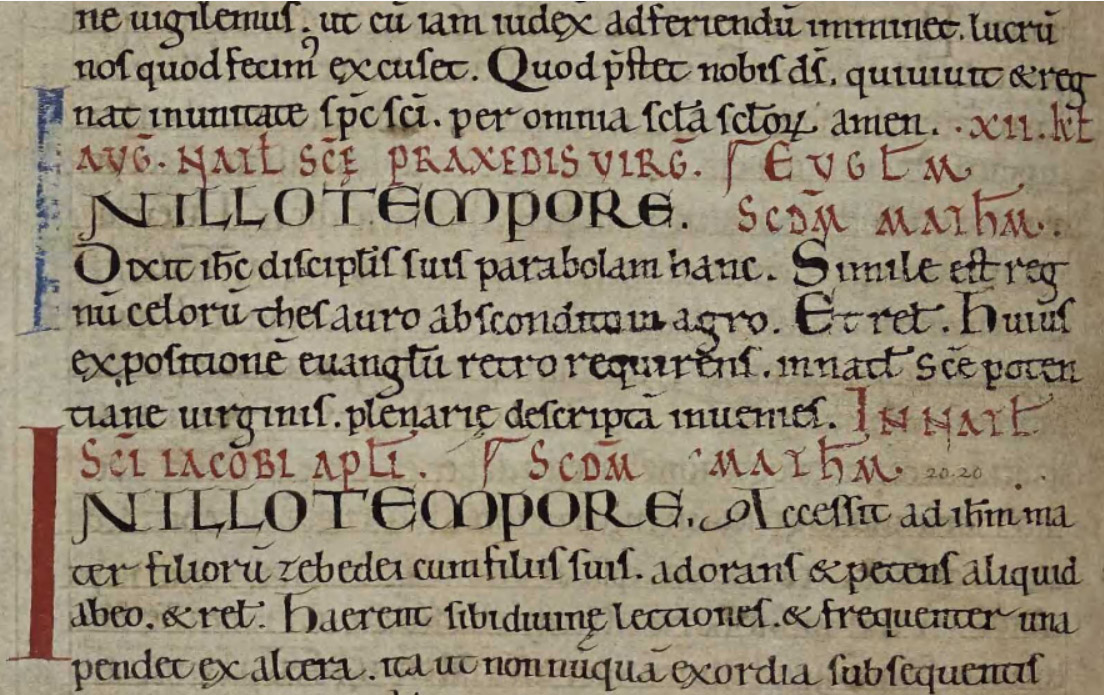
Homily on the feast of St Praxedis Posted by Richard Higgins on 17th August 2016
St Augustine on St John’s Gopel
Durham Cathedral Library MS B.II.16
A copy of one of the major theologians of the Middle Ages writing on the most esoteric of the Gospels. Written in St Augustine’s Abbey, Canterbury at the end of the 11th century this is very similar to the books given to Durham by Bishop William of St Calais and is a fine example of British book production during the transition period between Anglo-Saxon and Norman England.
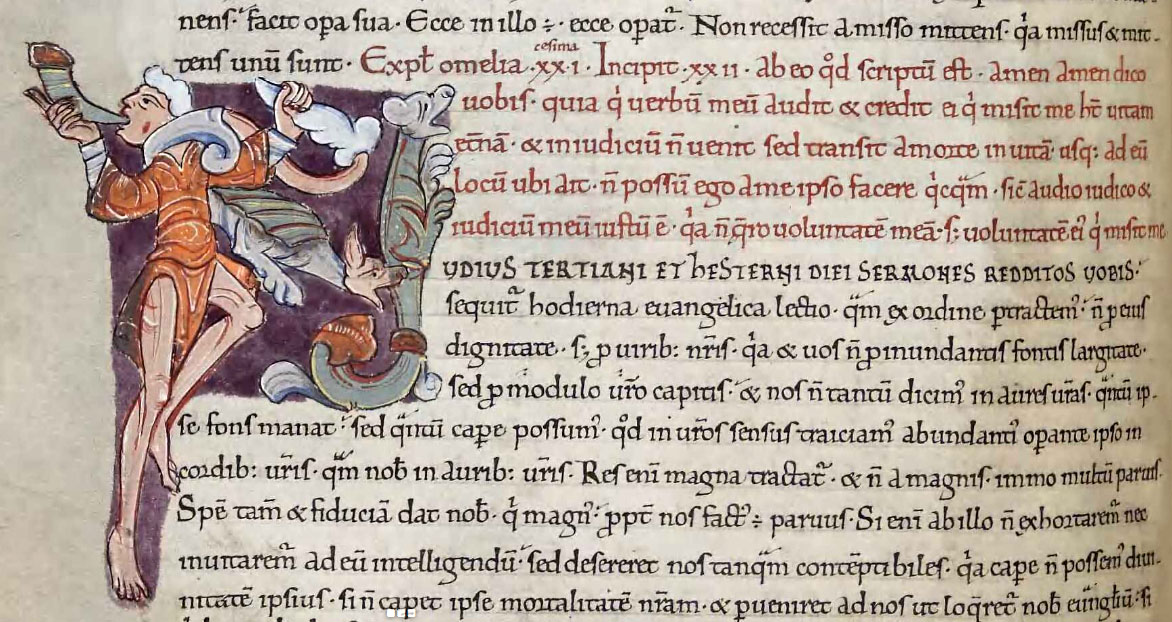
Bible of William of St Calais
Durham Cathedral Library MS A.II.4
William of St Calais became bishop of Durham in 1080, replacing his murdered predecessor Walcher in an area that was politically unstable due to the fluid Anglo-Scottish border and the shifting allegiances of the Norman elite. At Durham Cathedral he decided to appeal to a historic vision of monastic Anglo-Saxon Northumbria and combine it with his own vocation as a Benedictine monk to refound the institution as a Benedictine monastery, replacing the incumbent clergy with monks from that order. In 1093 building work on what is now Durham Cathedral began.
The stone foundations were matched with spiritual ones, in the form of books. Bishop William’s gift of nearly fifty books to his new foundation was headed by a large two volume bible, of which only the second volume survives today as DCL MS A.II.4.
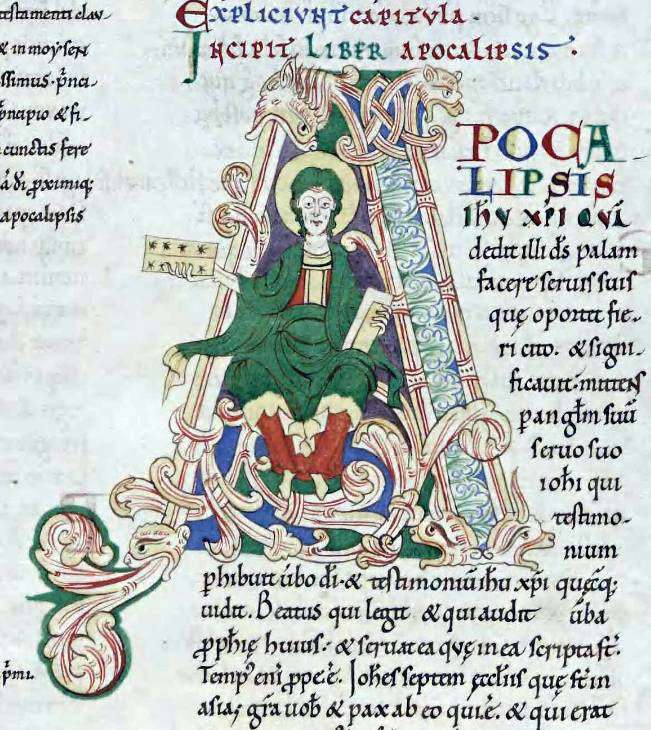
Initial A to the Book of Revelations Posted by Richard Higgins on 28th May 2016
The Durham Priory Library Project
The project has been underway for a while now. Most of the work has been behind the scenes, getting on with digitising books and building the infrastructure that will enable all the work to endure and be of lasting value. We are planning to make this a permanent web presence which means adopting standards (and following them) and aiming for the long term solution. Of course, when you are working with a medieval library, there are plenty of people who are quick to point out the irony of that. The digital versions, they observe helpfully, will never last as long as the parchment originals. Just one of the challenges …
So this is the ephemeral end of the project, providing a means of updating on project progress, hearing from the team members what they are up to, and looking at what other people are doing in a similar vein.

